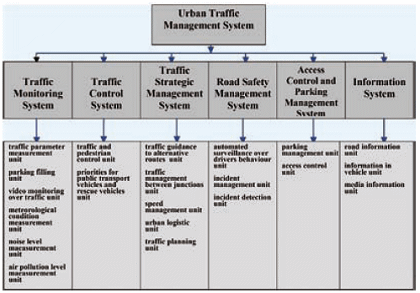|
Commission on Transportation
European Road Safety Charter -
road safety prevention
measures taken by UBC cities
 This year the UBC has signed the European Road Safety Charter (ERSC). The Charter is an undertaking of DGfor Energy and Transport of the European Commission, and its objective is reducing the number of traffic fatalities as well as promoting road safety prevention measures. This year the UBC has signed the European Road Safety Charter (ERSC). The Charter is an undertaking of DGfor Energy and Transport of the European Commission, and its objective is reducing the number of traffic fatalities as well as promoting road safety prevention measures.
The Charter has been signed by more than 1200 institutions, including UBC member cities. With this article, UBC Commission on Transportation wishes to start a series of articles in which UBC members will have an opportunity to present road safety prevention measures taken by their cities as well as to share their experiences in reducing the number of traffic accidents. The first city to present its action is Gdynia (Poland) which runs the Commission on Transportation. By signing the ERSC in 2007, Gdynia made several commitments, among others, to take measuresto reduce by 20% road accidents occurring at intersections by 2010 as well as to reduce number of road deaths and injuries. Thanks to the statistical analysis of road traffic accidents in 2003 - 2007, there have been identified the high-risk areas of Gdynia road system where engineering measures of traffic safety improvement could be taken. In the territory of Gdynia about 20 persons die annually in approximately 300 road accidents and in order to reduce this traffic riskthe following engineering measures are to be carried out:
- reconstruction of five intersections, identified as high-risk areas in the city,
- erection of traffic lights where they are most needed,
- creation of pedestrian shelters and guard rails for pedes trian safety,
- implementation of a traffic and parking management sys tem together with a monitoring system in high-risk areas,
- increase in traffic safety by building bicycle routes to ensure safer travel by bicycle.
At present the city is working on the designs of redeveloping a dozen or so high-risk intersections as well as of constructing about 15 km of bicycle routes. Two intersections will have been redeveloped by the end of 2009, others will undergo redevelopment in the near future. Within three years the city tends to construct dozen or so kilometers of bicycle roads.
High level of congestion, high number of incidents and high costs incurred when a street network is congested as a result of road incidents set the context for many cities worldwide to introduce intelligent systems for managing transportation. Consequently, the cities of the Tri-City Agglomeration (Gdynia - Sopot - Gdansk) made the decision to develop a concept of traffic management. Thus, conceptual work on the structure of system of traffic management called TRISTAR started in 2002. Five years later, following the agreement, the concept of detailed system TRISTAR was processed. At present Gdynia, Sopot and Gdansk intend to apply for extra funding from European funds. TRISTAR will comprise such functional sub-systems as integrated road traffic management system, integrated public (passenger) transport management system, integrated goods traffic management system (logistic centres), integrated rescue management system (integrated rescue system), integrated transportation information system. The two most important components are foreseen to be implemented in the first stage of TRISTAR system introducing - urban traffic management system and public transport management system.
 Road Safety Management System will be part of the urban traffic management system (see the figure above) and will enable to perform the following functions:
- automated surveillance over drivers' behaviour (speed exceeding and going through a red light) efficient and early detection of in cidents
- quick deliver of information on incidents to rescue service
- appropriate traffic managing to avoid secondary incidents as well as minimize delays caused by congestion
Road Safety Management System will perform in the most dangerous spots within Gdynia and Tri-City Agglomeration. If your city is interested in presenting its road safety prevention measures as well as in sharing its experiences in reducing the number of traffic accidents, please contact the Commission.
MORE
Ms Monika Pawlinska,
UBC Commission on Transportation | Secretariat,
Phone + 48 586688206,
E-mail: ubctransport@gdynia.pl |